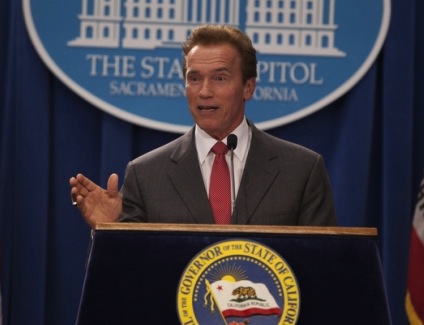By Earl Ofari Hutchinson
Contributing Columnist
The two most frequently asked questions when the issue of the California recall campaign comes up is: Why and how could that happen? The other question is: Is a recall constitutional?
After all, aren’t candidates supposed to win office solely by a standard election? That means the voters decide the winner every two or four years.
The candidates make TV and radio pitches, hold campaign rallies, give innumerable campaign speeches, garner funds and endorsements and do massive voter outreach through mailers and social media. Most importantly, the candidates must get the backing of the Democratic or Republican parties.
A recall then seems to fly squarely in the face of the standard electoral process. What’s worse, the California recall is quirky. That’s putting it mildly.
A recall candidate can win an office with a minority of the vote. In the 2003 recall election that ousted Gov. Gray Davis, Arnold Schwarzenegger received 48.6%.
It’s possible for a recall candidate, if voters say “no” to the incumbent, to win the governorship with as little as 10% of the vote. The recall winner is simply the one who gets the most votes.
In a field loaded with dozens of candidates, that lowball percentage is more likely what the winner would get to climb into the governor’s seat.
So, someone filling the California governor’s seat that 80% or 90% percent of California voters didn’t vote for seems beyond preposterous. But, again, it’s possible.
As for the constitutionality of the recall? Some legal scholars and advocates loudly protest that it’s unconstitutional because it usurps the power of the electorate to decide an election through the standardized election process.
However, the recall has been part of the state governing mechanism for more than a century. To ensure that it stayed that way, it was written into the state Constitution as Article 2, section 13: “Recall is the power of the electors to remove an elective officer.” It’s a simple, direct, but powerful statement that has withstood numerous legal challenges to dump it.
This time around we heard the same squawks from some legal experts that the recall is illegal. However, the protests will remain just that, protests. There will not be a change in the recall process.
How did this all happen? The recall petition in California and other states, along with its companions, the ballot initiative and referendum, came into being during the progressive era in the early 20th century. Voters were sick of the backroom wheeling and dealing, corruption, and cronyism that was the way political candidates were chosen and parties were run. The recall, the referendum and initiative were in a sense the exercise of “peoples’ democracy.”
It was a mechanism for voters to open up the political process to real competition and fairness.
As of 2021, only 19 states and the District of Columbia permitted voters to remove an official. Even in the states where the recall is on the books, it is the rarest of rare times that it is used.
Though there have been countless threats, efforts and petitions circulated to recall state officials over the decades in these states, 117 in California for instance, nearly all have gone nowhere.
Though Davis in 2003 became the first California governor to be recalled, even with him it was not the first try. His opponents tried first in 1999 to remove him, but they couldn’t get the required number of ballot qualifying signatures.
You would have to go back a century to 1921 to find another governor recalled. That was North Dakota Gov. Lynn J. Frazier. The issues that got Davis in hot water were a big electricity crisis, the perennial immigration wars and his clamping down hard on guns.
The 2003 recall was a true freewheeling affair with more than 150 would-be candidates jumping into the fray. It had to be one of the oddball collection of eccentrics, cranks, egomaniacs and wanna-be politicians, media and celebrityhood chasers, and fame seekers in anyone’s history.
It drew lots of laughter and cracks about kooky California from a chorus of political pundits. However, the show still went on, and the state got Schwarzenegger.
Schwarzenegger’s win proved that with a big celebrity name, a healthy boost from the Republican Party, big money interests and with absolutely no prior legislative experience, the impossible suddenly became possible with his election and then reelection to a full term.
This is the horror that Gov. Gavin Newsom and California Democrats know and fear. Newsom probably will win comfortably. There are just too few Republicans overall in the state to dump him.
But, as the old Mafia saying goes “you’ve been warned.” The recall should be a wake-up call for the Democrats (state and national) going forward — take the Black and especially the Hispanic vote for granted at your own peril.
Newsom will track to the right on some issues after his victory. So Larry Elder and the GOP in a sense will get what they wanted.
Earl Ofari Hutchinson is an author and political analyst. He is the author of “Bring Back the Poll Tax! — The GOP War on Voting Rights” (Middle Passage Press). He also is the host of the weekly Hutchinson Report on KPFK 90.7 FM Los Angeles and the Pacifica Network.












